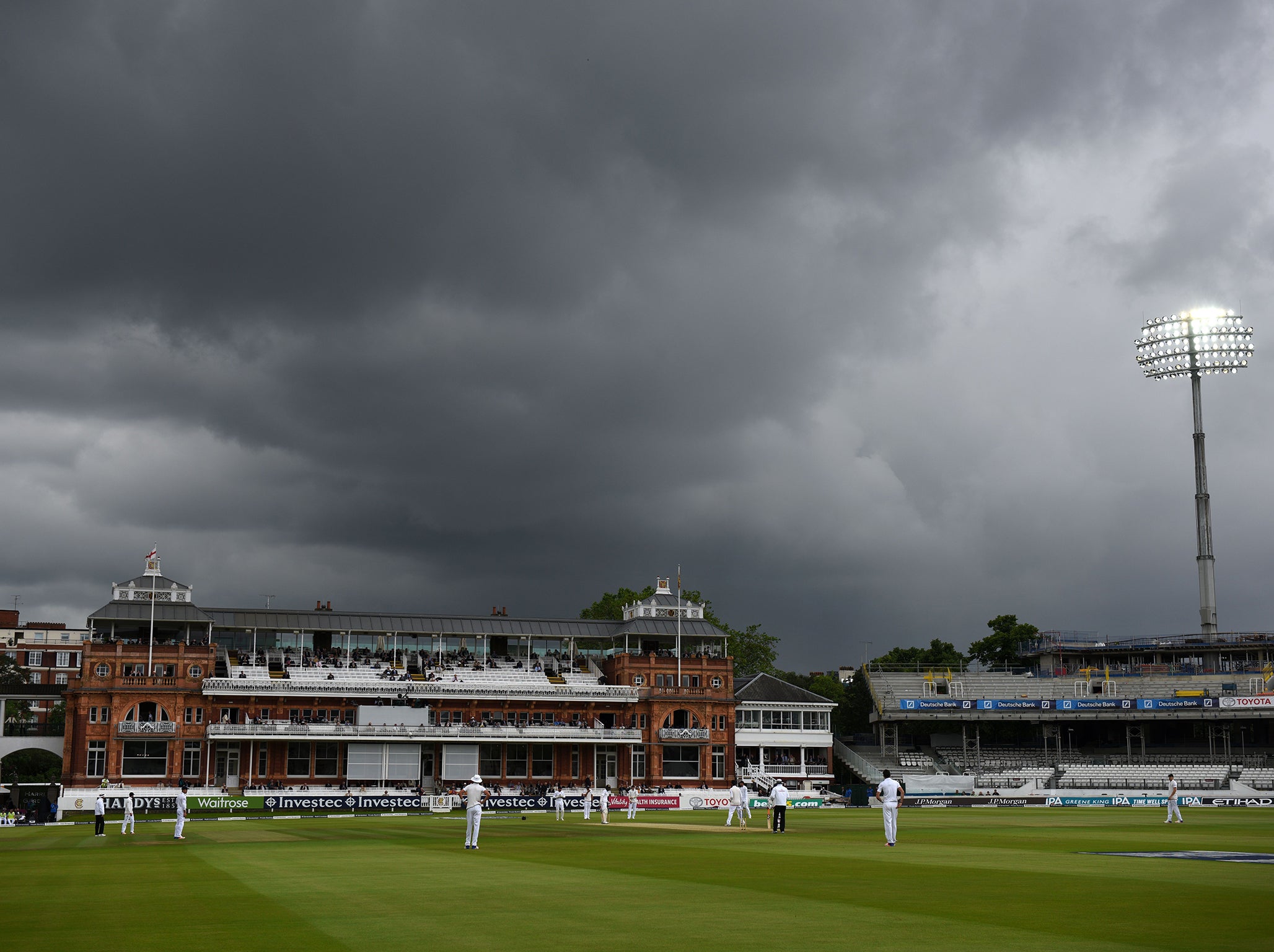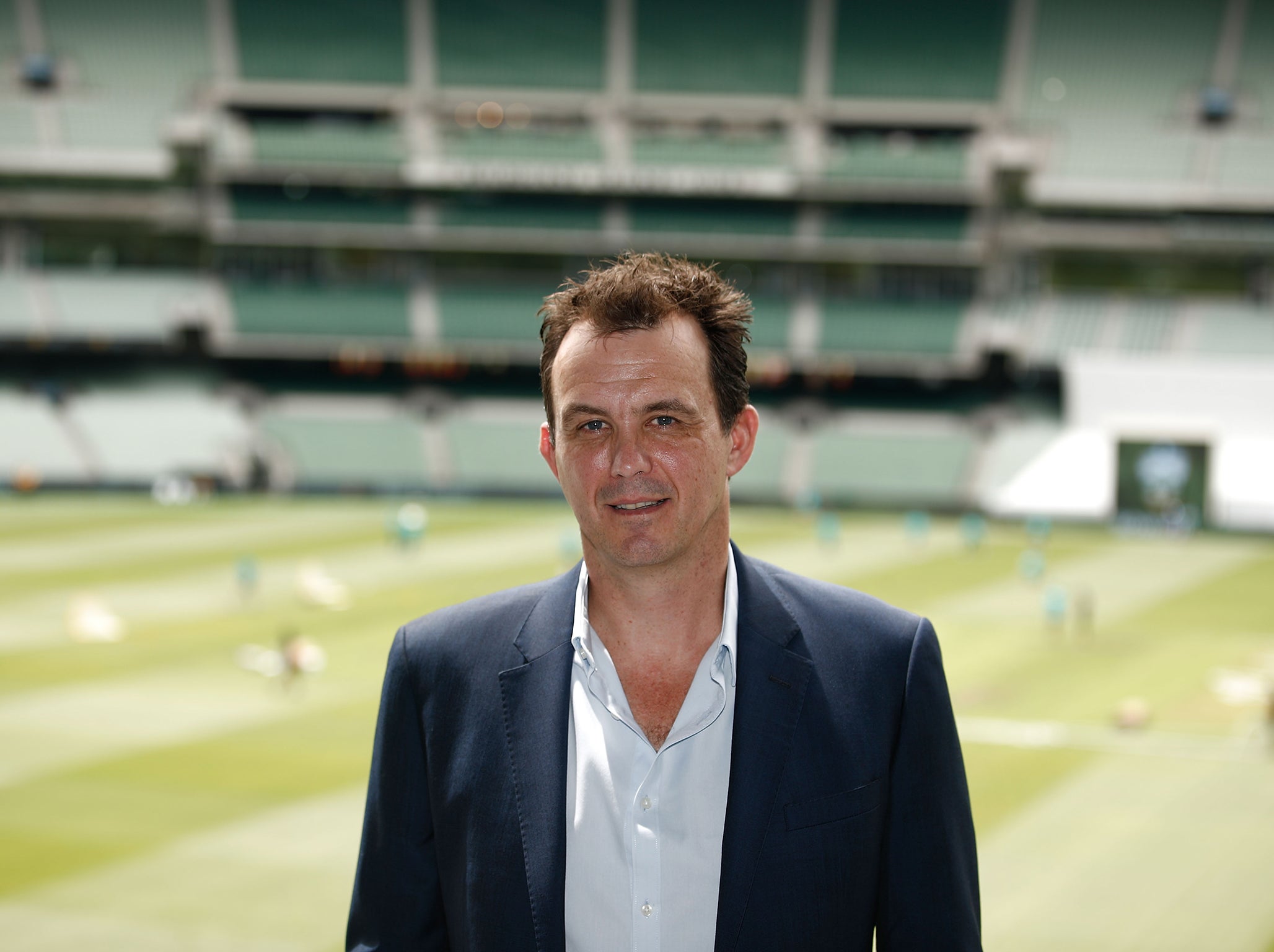Chief exec of ECB admits sponsors are beginning to express disquiet over high-profile disciplinary cases
Tom Harrison has said conversations are ongoing with commercial partners to allay fears over player behaviour, following a number of off-field issues involving English cricketers

Your support helps us to tell the story
From reproductive rights to climate change to Big Tech, The Independent is on the ground when the story is developing. Whether it's investigating the financials of Elon Musk's pro-Trump PAC or producing our latest documentary, 'The A Word', which shines a light on the American women fighting for reproductive rights, we know how important it is to parse out the facts from the messaging.
At such a critical moment in US history, we need reporters on the ground. Your donation allows us to keep sending journalists to speak to both sides of the story.
The Independent is trusted by Americans across the entire political spectrum. And unlike many other quality news outlets, we choose not to lock Americans out of our reporting and analysis with paywalls. We believe quality journalism should be available to everyone, paid for by those who can afford it.
Your support makes all the difference.Tom Harrison, the chief executive of the England and Wales Cricket Board, has admitted that sponsors are beginning to express their disquiet over recent high-profile disciplinary cases.
Speaking at the unveiling of a new strategy document for 2020-24, which the ECB hopes will safeguard the future of the sport by marketing the game to a family audience, Harrison said that conversations were ongoing with commercial partners to allay fears over player behaviour, following a number of off-field issues involving English cricketers.
Broadening the appeal of English cricket to engage more families and young people is a central plank of the ECB’s latest five-year plan, the linchpin of which is the new 100-ball tournament to be launched in the summer of 2020. However, incidents such as the trial of Ben Stokes for affray last year, and the recent trial of Worcestershire’s Alex Hepburn for rape, have the potential to hamper that goal. Last weekend two of Hepburn’s former Worcestershire team-mates, Joe Clarke and Tom Kohler-Cadmore, were withdrawn from the England Lions tour of India after their involvement in a sexual conquest game on WhatsApp was disclosed in court.
“It’s our responsibility to get on the front foot with these issues,” Harrison said. “Whether they’re problem gambling, drink, consent, recreational drug use. Clearly there’s concern out there with commercial partners about some of the stories. But we’ve worked very closely with them to explain what we’re doing on the back of the some of the societal trends that are coming into the game.
“The reason commercial partners get involved is the culture beneath your game. What cricket means to people, beyond the performance of teams, is this underlying sense of decency and team spirit. We take it incredibly seriously. These are issues that are pervading society now in a way they weren’t 25 years ago.”

The launch of the strategy document, entitled ‘Inspiring Generations’, has a strong focus on youth participation and diversifying the age profile of English cricket’s supporter base. Some of the more alarming figures contained within it are a result of the ECB’s exhaustive research over the past couple of years: 82 per cent of spectators, it finds, are male; 94 per cent white; while the average of a cricket follower in this country is 50.
Harrison said that English cricket still needed to shake off its latent image as a predominantly white, middle-class sport. “There’s a lot more that we can do to make cricket more open to communities that haven’t felt part of it in the past,” he said. “We need to shed that tag of elitism and privilege that we carry around with us. We don’t believe it’s good enough, for example, for us to be in only 22 per cent of schools. We’ve got to do more.”
The 100-ball competition, more details of which should emerge in the coming days as the counties prepare to sign off on the playing conditions for the new format, is at the heart of this effort. There was an admission from the chief executive that mistakes had been made in the implementation and consultation process, which alienated many counties and long-standing fans of the sport. Nevertheless, Harrison insisted that the new competition would transform the face of the game, both for new and existing supporters.
“The new competition is designed to appeal to cricket fans first and foremost,” Harrison explained. “It addresses three key principles: time, complexity and the perceptions of cricket that are out there. There is no sense that this is not for cricket fans. We’ve clearly got three formats that work pretty well. We fundamentally believe that the [existing Twenty20] Blast can both flourish and co-exist with the new competition. Cricket can be bigger. It can involve more people.”
Even so, the fact remains that with 18 months to go until the new tournament begins, it still has no agreed format, no teams, no players, no sponsor and no name. Plenty of work still needs to be done: both behind the scenes to get the competition off the ground, and in public to convince existing fans of its merits. The public may also be sceptical of a governing body that claims to be shedding a reputation for elitism when its chief executive, chief commercial officer, national selector, women’s team director and men’s red and white-ball team captains were all educated at fee-paying schools.
Nevertheless, a good deal of thought has gone into how cricket can reverse its declining fortunes. It is only the eighth most played team sport in schools in England and Wales, and just three per cent of Test match tickets are sold to juniors. A new “digital community”, the ECB’s existing South Asian participation initiative, a focus on “creating heroes” at international level and increased investment in primary schools, non-turf pitches and women and girls’ cricket are all intended to remedy this. Funding of almost £800 million has been committed over the next five years, most of which will come from the proceeds of the new £1 billion television deal with Sky and the BBC that begins in 2020.

For now, of course, many of the precise details remain sketchy. There is little new or radical in the ECB’s strategy document beyond a clutch of snazzy new buzz-phrases - “grow and nurture the core”, “inspire through elite teams”, “support our communities” - that smacks ever so slightly of Boris Johnson’s famous policy of being "both pro-having cake and pro-eating it".
Can you nurture the core whilst simultaneously introducing a new competition that will drain value from it? Can you inspire through elite teams when budgets at developmental level are being pared down to accommodate the new tournament? And can you champion clean-living family values while also championing cricketers who ride roughshod over them? Over the next few years - a pivotal and decisive period in the history of English cricket - you sense we are about to find out.
Join our commenting forum
Join thought-provoking conversations, follow other Independent readers and see their replies
Comments